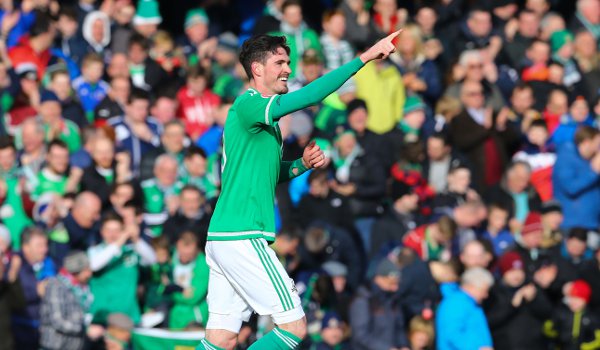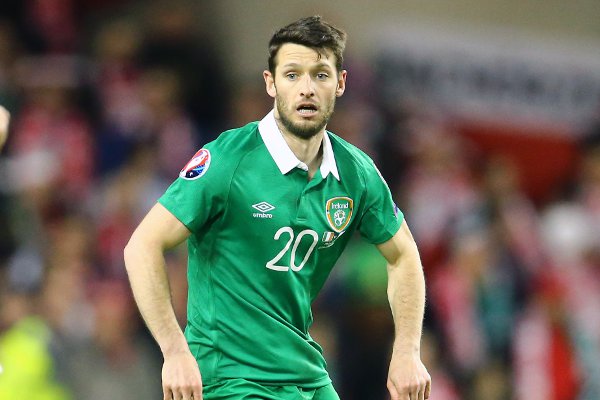AN HOUR had passed since he had answered the first question, enough time for anyone to either amuse or abuse Roy Keane. But on this day, his mood was good. He was poking fun at himself and then, when prompted, decided to do the same to the narcissists in the Arsenal dressing-room.
"Win the League? Arsenal? We ask the same question every year," said Keane, before moving on to another topic. Then, realising he had not delivered as good a soundbite, or as funny a line as he knows he is capable of, he revisited the subject.
"They're too interested in selfies and six-packs," he smiled, knowing there'd be headlines.
If controversy came with them, then too bad. He's used to that by now and in Keane's world, honesty has always been the best policy.
But sometimes the truth hurts which was why, when he started talking about the Irish team, the side he coaches, reality bit. "We need more players playing Premier League football," he said. "Otherwise ....."
The words trailed off. But we knew what he meant. 'Otherwise, we'll be in an even bigger mess than we already are'.
As this European championship campaign lingers on, there are plenty who consider the problem to be Keane and the senior partner in their managerial coalition, Martin O'Neill. They point to their inconsistent team-selections and compare their results to neighbouring countries and ask, 'why them, why not us'?
Across the border, another O'Neill (Michael), has guided Northern Ireland to second place in their European qualification group, and with a pleasant enough run-in (they travel to the Faroes and Finland and host Hungary and Greece), eight points should see the Ulstermen reach their first major finals in 29 years.
That they have done so comes down to a fair degree of luck. "Roy Hogdson was chatting to me, and pointed out we're in the hardest group," said O'Neill before the Ireland-England friendly. "It's something we just have to get on with it."
In contrast, Northern Ireland's group could hardly be handier. Top seeds Greece have drawn two and lost four of their six games - a stark contrast to the prospect facing Ireland, who were lumped into the same group as world champions, Germany.
And yet despite the relative ease of Northern Ireland’s fixtures, they have produced a decent return on their results, and have done so with a collection of journeymen and ageing pros: Roy Carroll is 37, Aaron Hughes 35, Chris Baird 33, Gareth McAuley 35, Steven Davis 30, Chris Brunt 30 and while Kyle Lafferty is, at 27, in his peak years, last season he managed only 14 appearances and two goals for Caykur Rizespor, who finished 14th in the Turkish Super Lig.
Yet when he wears a green shirt, Lafferty is a man transformed, scoring five goals in this campaign, each of them contributing to an Irish victory.
It's a theme repeated across Europe where smaller nations than Ireland have thrived on the back of one key player hitting form. Across the water, it's Gareth Bale – the scourge of Madrid but the prince of Wales. Scorer of five goals in six qualifiers, Bale's goals rescued Wales in Andorra and inspired them to credible victories away to Israel and at home to Belgium.
"I'm envious of the Welsh and the fact the number of players they have in the Premier League – and also the Champions League. Not just they have players there but that those players are getting regular football," said Keane. "Too many of our players aren't getting into their club sides. Plus, we've lacked a bit of luck with injuries."
Ordinarily when a manager nods towards the physio's room, he's doing so with a plan in place. If you talk about the men you don't have, rather than the ones who are at your disposal, you can buy yourself time.
Yet Keane's assertion (just about) stands up under scrutiny. At this stage, it's fairly clear that his and O'Neill's preferred starting line-up revolves around the following nine names: Shay Given, Seamus Coleman, John O'Shea, Marc Wilson, Robbie Brady, Jon Walters, Glenn Whelan, James McCarthy and Aiden McGeady. After that, there is neither rhyme nor reason to their thought processes.
Robbie Keane may have started four of the six qualifiers but since being substituted mid-way through the second half of the 1-1 draw against Germany, he has been picked just once, at home to Poland.
Against the Scots, in June, Daryl Murphy got the nod, the first time that has happened in the Ipswich striker's career. Before him, Shane Long was trusted with the number nine shirt in Glasgow. He hasn't started since.
Then there is Wes Hoolahan, selected for the Gibraltar game, ignored for the next one, injured for the match after, then catapulted back into the team for the last two qualifiers. Does this mean he'll keep his place for the rest of the campaign?
You wouldn't bet on it. After all, Stephen Quinn was the man selected for the away trips to Georgia and Germany but he has had to be content with a place on the bench thereafter. Jeff Hendrick has started three of Ireland's six matches but never two in succession.
"Wales have done superbly well," said Keane, "but they've had luck with injuries, in the sense they haven't had many. We've had a few."
And it has shown. The Welsh campaign, which began with stuttering wins over Andorra and Cyprus, took off when Bale hit form. Significantly, he has been there for all six of their qualifiers, as have four others. A further three players, Joe Ledley, Joe Allen and James Chester have played five of their six games.
Aaron Ramsey has missed two through injury. Otherwise the Welsh have had a clean bill of health with changes to their line-up happening by design rather than necessity.
"It has been a fortunate issue," conceded Chris Coleman, their manager. "Each time we've made changes, the lads who have come in have been excellent."
Yet consistency in performance stems from consistency in selection. While Keane can point to injuries (Wilson, Whelan, McCarthy and Hoolahan missed the Celtic Park match), changes in personnel have also stemmed from managerial tinkering.
For starters, there was the goalkeeping and left-back situations. Shay Given and Robbie Brady are considered indispensable now yet for the first four qualifiers, they sat on the bench with O'Neill preferring David Forde and Stephen Ward.
A settled midfield has still to be established with Hoolahan, Stephen Quinn, Darron Gibson, James McClean and Jeff Hendrick coming in and out, partially because McCarthy was unavailable for three of the six qualifiers but partially because Keane and O'Neill haven't made their minds up yet on certain players and positions.
Against this backdrop, an Irish public waits for a major win against a major team in a qualifier.
The line about being a small nation is no longer sellable. Iceland, a country of 300,000 people top a group containing the Czechs, Holland and Turkey, with five wins out of six including home victories over the Dutch and Czechs.
"How about we just go out and win our last four games?" asked Keane. "It is what we intend doing."
Few think it's possible. Then again, few thought we would defeat Holland in 2001. A certain Roy Maurice Keane had other ideas back then. It's no harm having him around to come up with a few more now.
We've created an All-Ireland Fantasy XI on http://t.co/UvKQdgqqky, join our league with this code: 1751910-405075 #FF pic.twitter.com/6ws03fFzzc
— Irish Post Sport (@IrishPostSport) August 5, 2015



